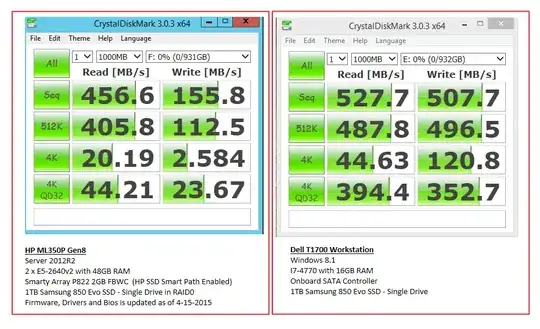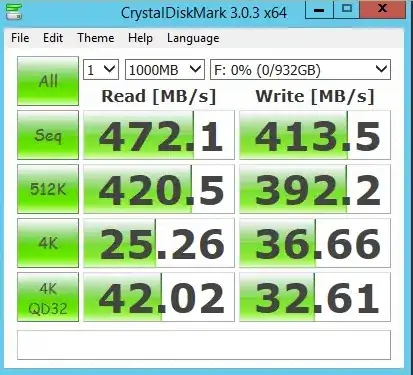HP's $1,000 Smart Array P822 controller is outclassed by an on-board raid controller. I'm having a hell of a time trying to figure this one out. My problem is that performance on the HP controller is significantly below what the drive is capable of, as demonstrated on the Dell computer and other benchmarks performed by others online. I realize that these are 3rd party drives being used in an HP server, however, I still expect performance to be comparable and not be different by a 50x factor. If I went out and purchased a HP SSD, what performance should I expect to see? Please advise on anything that you believe would be likely to cause this problem, general recommendations or any reasons why my expectations should be adjusted.
Please see the image here: Image Link

I have enabled "Physical Drive Write Cache State" on the controller and that helped a bit. The 4k reads and writes are still lacking. Any ideas? Here is a picture of the performance after the change.
